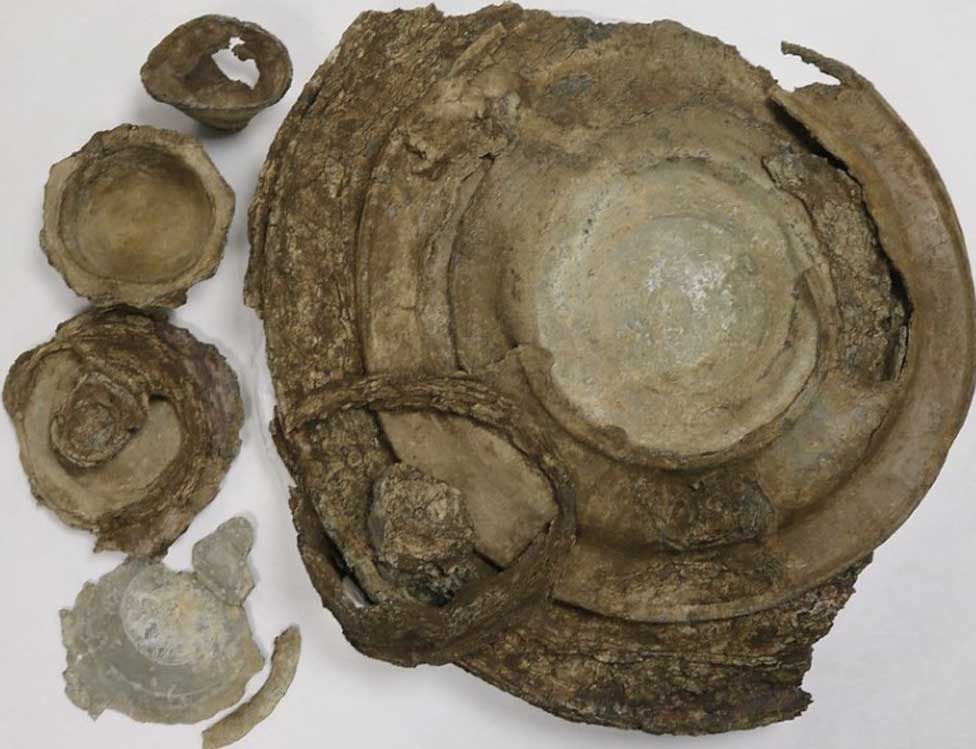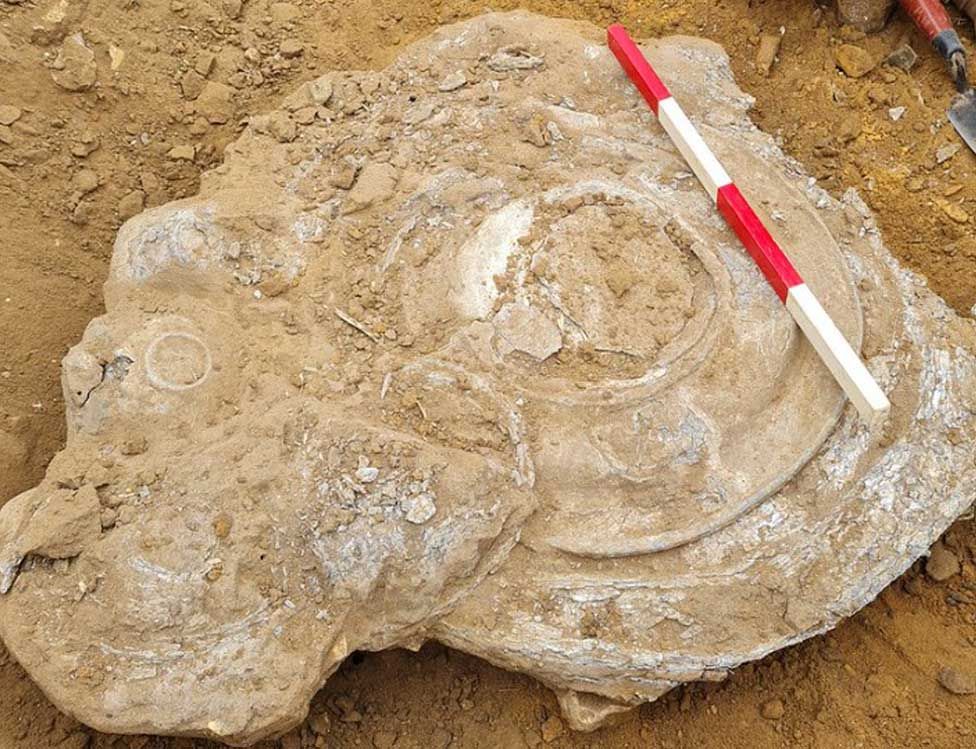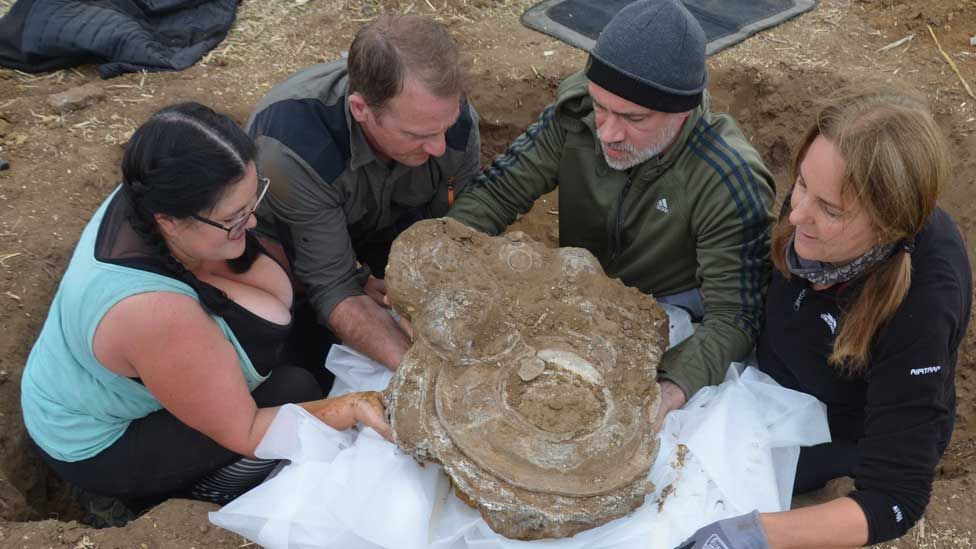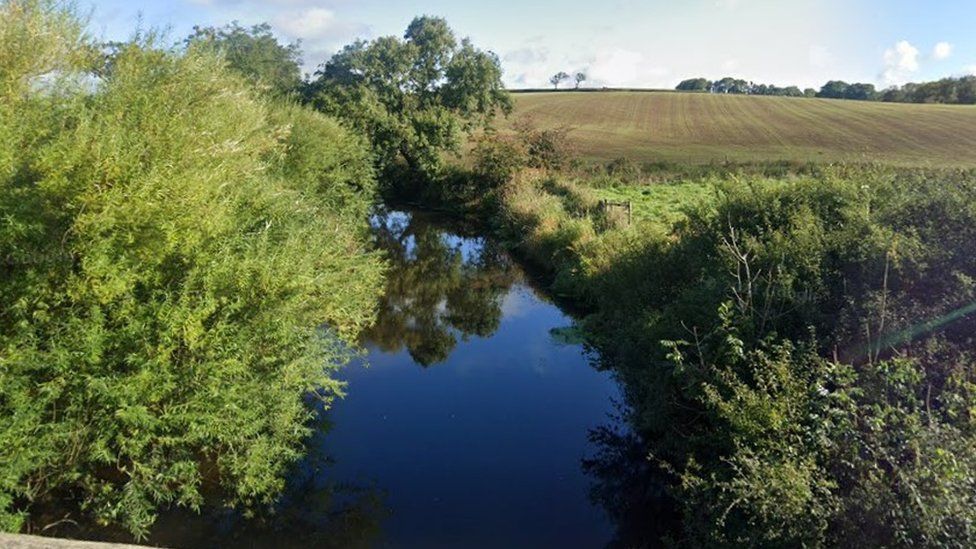An "important" hoard of Roman artifacts found in Suffolk has been put on display.
Last year, a local metal detectorist discovered pewter plates, platters, bowls, and a cup in Euston.
Experts speculated that the placement of the vessels "possibly for safe keeping or an offering" was suggested by the way they were buried.
Up until January 2024, they will be on display at the nearby Anglo-Saxon village of West Stow.

Martin White, who was taking part in a planned detecting event, found the hoard on the Duke of Grafton's Euston estate in September 2022.
Their excavation was organized by Suffolk County Council Archaeological Service, and the artifacts were preserved by Norfolk Museum Service.
From the invasion led by Emperor Claudius in AD 43 until the early 5th Century, Britain was a part of the Roman Empire.
According to the council service, the late Roman period vessel remains were discovered buried in a pit and "carefully stacked, suggesting that they were placed as a single group, possibly for safekeeping or an offering.".
The hoard does not comply with the 1996 Treasure Act because it is Roman in origin and made of pewter.

It was "a significant discovery," according to Faye Minter of Suffolk County Council's Archaeological Archives.
She added that the octagonal bowls might be a reference to Christianity and that the larger platters and plates were used to allow food to be served communally.
Similar hoards have been discovered all over southern Britain, including in the vicinity of the sizable Roman settlements at Icklingham and Hockwold. ".
This was Mr. White's "most high profile find," and after about ten years of metal detecting, he described it as "very exciting.".
From discovery to excavation to seeing the finds put on display, he said, "It was a privilege to be involved in the whole process.".
The discovery, according to Councillor Ian Shipp of West Suffolk Council, which manages West Stow Anglo-Saxon Village, "added a new strand" to the tale of the region's past during the later Roman period, just as the settlement at West Stow was getting started.
In order for everyone to "share in the joy of this historic Suffolk find," the Duke of Grafton said that the estate was happy to donate the hoard.







